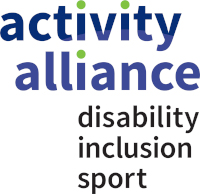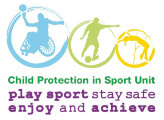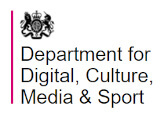World Health Organisation Guidance to prevent the spread of the Zika virus at the Rio 2016 Games

IHR notification: WHO guidance to prevent the spread of Zika virus in the context of the Rio 2016 Olympic and Paralympic Games
WHO convened the third meeting of the Emergency Committee (EC) on Zika virus and observed increase in neurological disorders and neonatal malformations under the International Health Regulations (2005) on 14 June 2016. Among its recommendations the committee indicated that:
• Countries with travellers to and from the Summer Olympic and Paralympic Games being held in Brazil (5 to 21 August 2016 and 7 to 18 September 2016 should fully inform travellers from their countries about the risks of Zika virus infection, the personal protective measures that should be taken to reduce those risks and the action that they should take if they suspect they have been infected. Countries should also establish protocols for managing returning travellers with Zika virus infection based on WHO guidance.
WHO is asking IHR National Focal Points to distribute the following recommendations to their ministries of health and to National Olympic and Paralympic Committees to ensure that Zika-related health protection information is shared with all travellers to the Games.
WHO travel recommendations related to the Olympics and Paralympics are the same as for travel to all areas with circulating Zika virus. Athletes should follow the same precautions as recommended for all travellers.
Before the Games:
• Travellers should be fully informed to reduce the risk of Zika virus infection and potential complications, especially for women who are pregnant.
• Pregnant women should be advised not to travel to Brazil.
• prevent mosquito bites by using insect repellent and protective clothing.
• practice safer sex, including the consistent and correct use of condoms, or abstain from sex during their stay in Brazil.
• women who discover they are pregnant during their travel or shortly after returning from Brazil should contact their healthcare providers for counselling about Zika virus risks and pregnancy management.
• all travellers should practice safer sex, including the correct and consistent use of condoms, or abstain from sex for at least eight weeks after their return.
• men who experience symptoms of Zika virus disease during or after their return, should adopt safer sex practices or abstain from sex for at least six months.
• pregnant women whose sexual partners travelled to Brazil should practice safer sexual practices or abstain from sex for the duration of their pregnancy.
• couples or women planning a pregnancy should wait at least 8 weeks after return from Brazil before trying to conceive; and 6 months if the male partner was symptomatic.
• to the extent possible, all travellers should use personal protective measures such as insect repellent for at least three weeks after returning from the Games to avoid being bitten and potentially spreading the infection to other people through mosquito bites.
• healthcare practitioners should be alert for Zika virus disease symptoms in travellers who are returning from Brazil within 2 weeks of their return and follow the country’s protocols for managing returning travellers with Zika virus infection.
• healthcare practitioners should have clear guidance on how to refer travellers with suspected Zika virus infection for suitable clinical management and testing where appropriate.
• travellers should not donate blood for at least four weeks after departure from Brazil to reduce the potential risk of onwards transmission.
WHO will regularly update its guidance on travel with evolving information on the nature and duration of risks associated with Zika virus infection.
Resources:
• Information for travellers visiting Zika-affected countries: http://www.who.int/csr/disease/zika/information-for-travelers/en/
• Travel health advice on Zika virus for national authorities and healthcare practitioners: http://www.who.int/ith/updates/2016_04_11/en/
• Brazil - Health advice for travellers to the 2016 Summer Olympic and Paralympic Games: http://www.who.int/entity/ith/updates/20160621/en/index.html
• WHO publications and technical guidance on Zika virus and complications: http://www.who.int/entity/csr/resources/publications/zika/en/index.html
• Vector control operations framework for Zika virus. WHO, 2016: http://apps.who.int/iris/bitstream/10665/207481/1/WHO_ZIKV_VC_16.4_eng.pdf
• Prevention of sexual transmission of Zika virus: http://apps.who.int/iris/bitstream/10665/204421/1/WHO_ZIKV_MOC_16.1_eng.pdf?ua=1
Latest news from Active Black Country
View all news
INSIGHT HUB
Timely data and learnings in relation to physical activity and sport in the Black Country and the added value we can offer.

ACTIVATION ACADEMY
Resources and training material to support the Black Country sport & physical activity workforce














